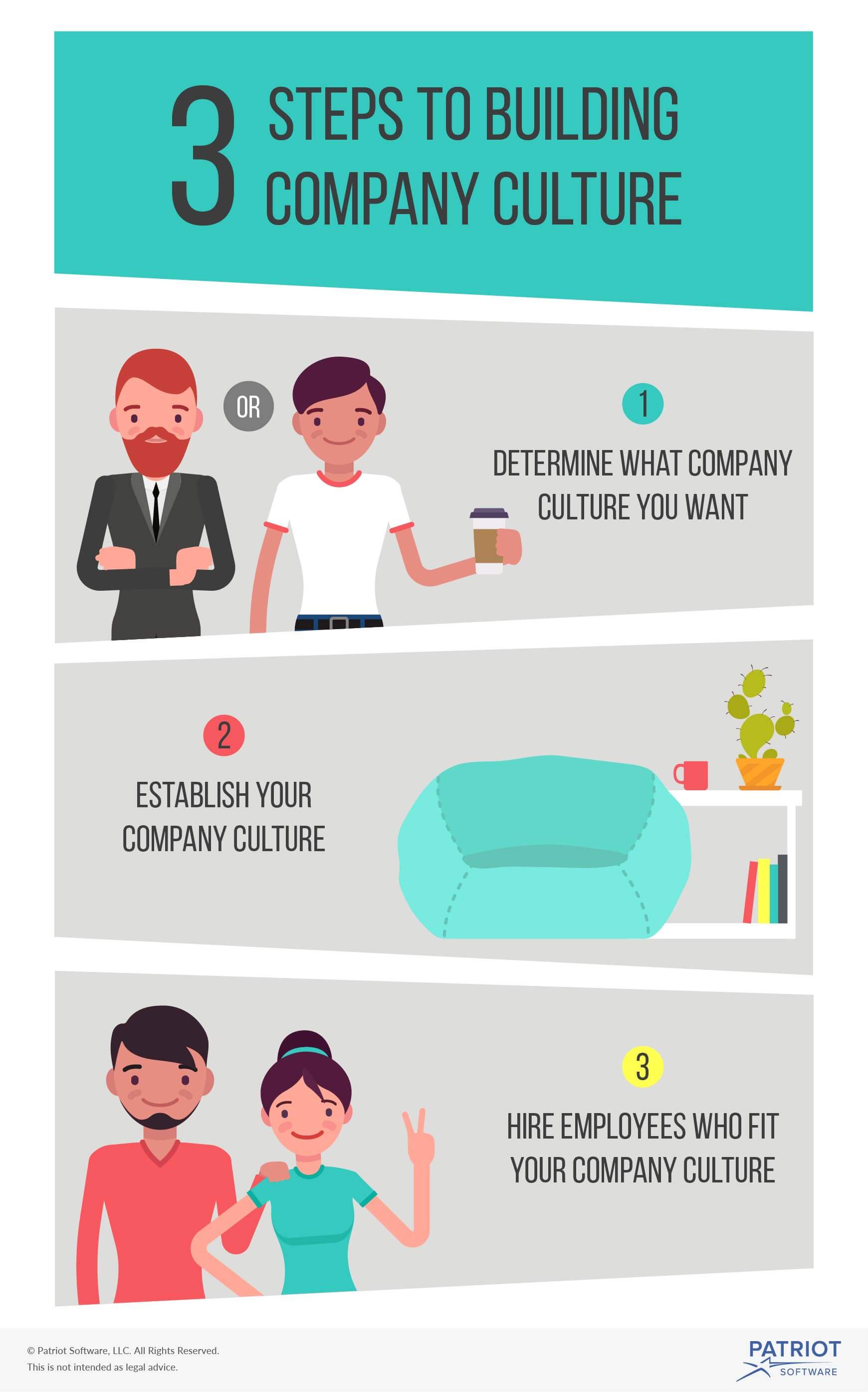If you want to attract and retain employees, customers, investors, and other brand ambassadors, you need to develop an alluring company culture. But, building company culture doesn’t happen overnight.
Be patient when developing your small business’s company culture, and follow the steps in this article to make it worth your time. Read on to learn what company culture is and how to build it.
What is company culture?
Company culture can refer to the unique things about your business’s environment, including core values, rules, and operations. The employees you hire, the processes you use to achieve goals, and your business’s mission contribute to the creation of your company culture.
So, what are examples of company cultures? Company cultures can be relaxed or formal, team-oriented or individualistic, and fun or serious.
First and foremost, company culture directly relates to employees, as they are the people working in your business day in, day out. But, company culture can go beyond employees and influence customers and investors.
Having a good company culture is crucial when hiring employees and keeping them happy. A cohesive company culture can make all the difference between attracting unqualified candidates and top talent. And, you need to hire employees who fit your company culture.
Company culture also matters to customers and investors. Customers want to buy from businesses with unified workforces, happy employees, and prominent brands. And, investors want to invest in companies with distinct brands, engaged employees, and strong core values.
3 Steps to building company culture
Are you eager to know how to build company culture? Whether you’re starting your business, preparing to bring on employees, or looking to revamp your current culture, check out the following tips.

1. Determine what company culture you want
If you want to build your company culture, you need to have an idea of what you want to create. When creating company culture, do not copy another business. Your company culture should be unique, align with your business’s brand, and capture your business’s personality.
Consider your individual values and the values you want your business to follow. Think about your small business mission statement, vision statement, and goals. Decide what kind of management system you want to implement. Do you want your small business to be relaxed or structured?
If you don’t hammer down the kind of company culture you want, you won’t get everyone on the same page. You need to have an idea of the culture you want to create before you can ingrain it in your small business.
2. Establish your company culture
After planning the type of culture you want to create, you must put it in place. Company culture is the culmination of many things, so establishing it will take a bit of time and effort. You can develop your company culture by implementing small business employee benefits, creating a physical environment that matches your desired culture, hosting training sessions, and promoting your core values.
The benefits you offer employees should reflect your company culture. Aside from traditional benefits like insurance and retirement plans, common employee benefits include flexible schedules, the ability to work remotely, a casual dress code, paid time off, education assistance, and company get-togethers. Offer the employee benefits that fit the kind of culture you want to create.
The physical setting you create also contributes to your company culture. For example, businesses that promote a company culture of fun might have ping pong tables in the break room. Or, businesses that have a team-oriented culture might arrange desks to encourage collaboration.
Training should be standard in businesses. But the way you go about training can influence and reflect your company culture. You can host training sessions in your small business, off-site, or online. For example, a company culture that is individualistic instead of team-oriented might have online training sessions.
You should weave your business’s core values into your company culture. Remind employees of your business’s core values by listing them around your small business. For example, Patriot’s core values are on our website and television screens around the office.
It’s not enough to set out some furniture that fits with your company culture. You have to be a walking embodiment of your company culture by putting your values and processes into action and ingraining them into your business.
3. Hire employees who fit your company culture
The employees you hire also influence your company culture. The quickest way to alter your business’s company culture is to hire employees who do not fit it. When employees are not a good fit for your business, they can have a negative impact on your company culture.
Employees who do not fit your company culture can lead to high turnover rates, clash with business processes, misrepresent your business, and cause problems among your staff.
When looking for new employees, you need to highlight your company culture and find out whether candidates would be a good fit. Include information about your company culture in your job description, screen candidates with company culture-related interview questions, pass out a job-fit test, and include your current staff in the hiring process.
